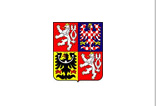TransConflict Serbia works to improve understanding about – and formulate responses to – extremism in Serbia by engaging representatives of parties from across the political spectrum, civil society organizations, academics and the media.
Updates:
- The challenges of transitional justice in the former Yugoslavia
- Combating violence in sports in Serbia
- Advocating against extremism
- Ethnic stereotypes and national myths
Background and Justification
A spate of incidents in prior years has once again demonstrated the threat posed by extremism in its various guises. Extremism constitutes both a cause and a consequence of conflict; deepening mistrust within and between communities, and often contributing to outbreaks of violence and acts of terrorism. Extremism can, therefore, be said to constitute one of the main security threats faced by Serbia today; one that demonstrates the unpredictability of contemporary security threats and the necessity for greater understanding of notions of extremism. In spite of this, however, extremism remains a relatively under-explored phenomenon, especially in those countries where its impact is hardest felt. Understanding the causes of extremism, however, is one of the perquisites for both preventing and combating it.
As such, TransConflict Serbia aims to deepen understanding about, and improve the development of responses to, these issues – of extremism, nationalism, terrorism, religious fundamentalism and hate-motivated crimes. TransConflict Serbia has engaged representatives of civil society, political parties, academia and the media in a variety of activities designed to formulate both policy and advocacy responses to various incidences and examples of extremism. Participants will participate in topical seminars on various elements of extremism – including religious fundamentalism, hate speech/crimes, political extremism (far right/left) etc. – as well as in-depth trainings in key facets of advocacy tools and techniques. TransConflict Serbia, in conjunction with the participating organizations, plans to organize a series of public debates and publish a series of articles on extremism and related topics.
The overall objective of this project is to improve understanding about – and formulate responses to – instances of violence and extremism in public and political life.
Other strategic goals include:
- to raise awareness and understanding about the drivers and manifestations of extremism in Serbia and the wider region;
- to develop comprehensive approaches – both in terms of message and methodology – for dealing with issues associated with extremism;
- to enrich the debate and dialogue about extremism and its protagonists, plus the role of media, and religious/informal associations, etc.;
- to foster links with regional organizations, scientific institutions and parliamentarians engaged on issues pertaining to extremism;
- to strengthen the capacity of parliamentary political parties to formulate policy in areas of relevance to extremism, thereby improving the standard of parliamentary debate and oversight on these issues;
TransConflict Serbia hopes that through this project, the various target groups engaged will find ways of working together on the development of common messages and methodologies for tackling the problems of extremism; thereby raising awareness and understanding about the drivers and manifestations of extremism in Serbia and the wider region.
For further information about ‘Understanding and combating extremism in Serbia’ – including information on how to participate – then please write to TransConflict by clicking here.





